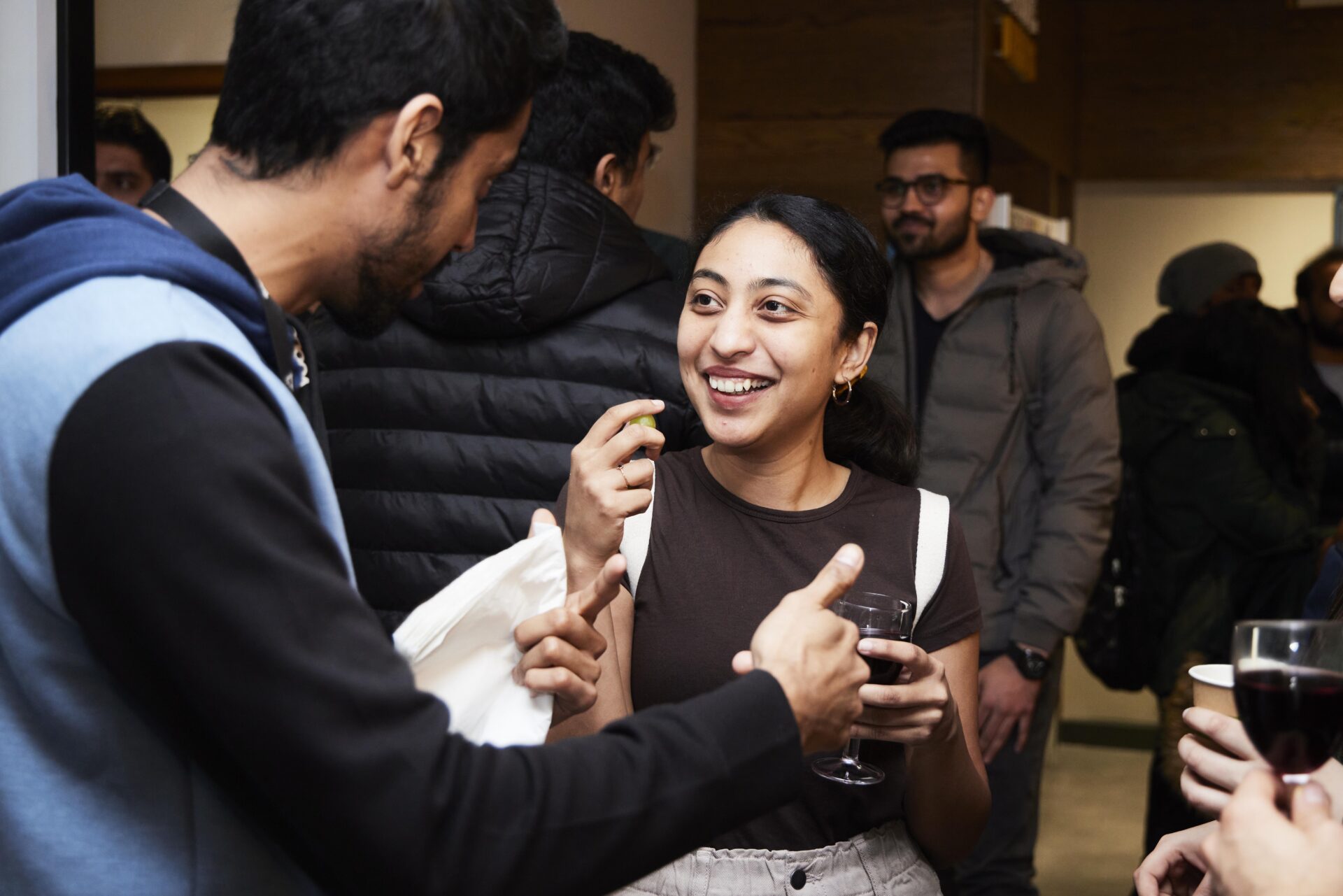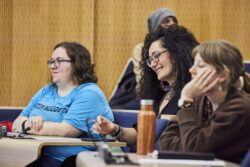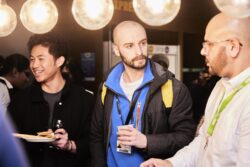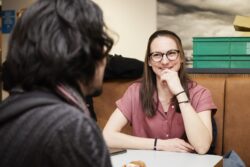An encore for data science!

By Prof Paul D. Baxter, LIDA Director of Education & Training
LIDA’s first Data Science Careers Event, targeted at our Leeds undergraduate and postgraduate students, proved a huge success.
The event reached capacity within days of opening on Eventbrite, even after our upgrading to the large 80+ seat Worsley Dental Lecture Theatre from the LIDA Boardroom. It was a packed agenda and an even more packed theatre with students and staff lining the interactive booths from top to bottom.
The talks
The event featured talks from three exciting organisations across the public and private sectors, Asda, Bank of England and Channel 4 – all with strong links to both Leeds and LIDA and all who use data in different ways and for different purposes to inform their work. This even included a number of our own Leeds graduates as speakers.
The talks were a fascinating mix of case studies on use of data science in each organisation and hints and tips for those starting out in their careers. We learned how Asda use time series methods to forecast the optimal discount to give George clothing items in clearance; we found out about how the Bank of England utilise ridge regression in predicting inflation. Channel 4 told us how they use models of viewer behaviour and context to improve viewing recommendations on their All4 app.
The audience were able to interact with the speakers via Padlet and posted thought provoking questions such as “what is the focus in your organisation on sustainability and environmental impact and how can data science help?”. The more formal part of proceedings closed with a brief roundtable discussion on CV and application tips* before we moved to the networking and refreshments (with cakes marginally ahead of cheese in the popularity stakes!).


The advice (snapshot!)
*Spoiler alert – the top general application tip from all our panellists – personalise and tailor both your CV and cover letter to show you really want that particular job role. It gives the game away if you’re sending the same version to every prospective employer, they can tell!
More specific advice from Jonny Hawkins at Channel 4 was that for junior hires, they’re looking for: a solid grounding in data exploration and visualisation, which typically means familiarity with the pandas and matplotlib libraries as well as an ability to interpret plots and descriptive statistics; comfort with building statistical models using the sklearn library; and lastly good communications skills.
Laura Bown at Asda gave us the lowdown on what the focus is on sustainability and environmental impact in their Data Science. “We are working on some projects that have benefits in this area e.g. we are constantly working on improving our demand forecast accuracy which will reduce food waste, and we are currently working on another project around stock replenishment processes alongside our suppliers, which will help to reduce some of the packaging used during transportation. However, there is clearly more work to do in this area and it is becoming a growing focus."
And as for her preferred programming language between Python or R? “Within the data science team, we predominantly use Python, but one of the great parts of using Databricks is that it gives the option to also use R interchangeably (as well as other languages!) My personal preference is also Python because of the versatility and the range of tasks that it can be used for, but I think R is sometimes easier to use for some tasks e.g. plotting and visualisations."
The cheese & wine
There was a real buzz in the room with students lining up to ask the speakers questions and introduce themselves. Lots of happy smiling faces and fruitful discussions until well after our anticipated 6pm close time.


As I said at my introduction to the event, for me, this was a perfect example of what LIDA is about – bringing people together (be they staff, students or external collaborators) to meet and learn from one another, sharing insights and exploring new ways of working together.
It was a great team effort, with special thanks to Paul Evans (Research and Innovation Development) for organising the speaker line up. And to Kim Wright (Operations) and Hannah Jackson (Communications) for so ably organising the logistics and marketing.
The next one
Plans are already underway for our next careers event, likely March 2024, and featuring an even broader range of speakers, in an expanded half day format, at a larger venue. Suggestions of course are welcome and be sure to watch this space for when tickets go live (which may prove even more popular than Eurovision/Glastonbury!).
In the meantime, if you just can’t wait for next year you can watch plenty of behind the scenes content and even watch the event back in full…
